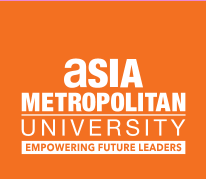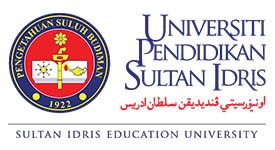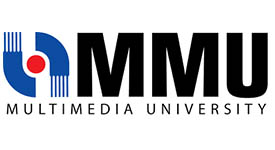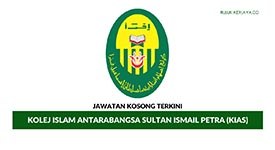Aquaculture With Entrepreneurship Course in Malaysia : Complete Guide for International Students

- Home
- Specialization
- Aquaculture With Entrepreneurship
Overview
The Aquaculture with Entrepreneurship course in Malaysia equips students with the skills to excel in the fast-growing aquaculture industry while fostering entrepreneurial innovation. This course combines hands-on training in sustainable aquaculture practices with essential business knowledge, empowering graduates to start and manage their own ventures.
Key areas of study include fish farming, aquaculture technology, environmental sustainability, business management, and marketing strategies. With Malaysia's thriving aquaculture sector and increasing demand for sustainable seafood, this course offers a clear pathway to success. Graduates can pursue careers as aquaculture entrepreneurs, farm managers, or consultants in the booming industry.
Why study Aquaculture with Entrepreneurship Course in malaysia
Study Aquaculture with Entrepreneurship Course in Malaysia
- This specialized course equips students with the knowledge and skills to succeed in both aquaculture and entrepreneurship. Malaysia’s coastal regions, tropical climate, and abundant marine resources make it an ideal location to study and practice fish farming and marine cultivation.
Government Support and Incentives
- The Malaysian government actively supports the aquaculture industry, providing various incentives, grants, and policies to encourage local entrepreneurs. By studying aquaculture with entrepreneurship in Malaysia, you'll benefit from these initiatives, which can help you launch your own business in this thriving sector.
Entrepreneurial Opportunities in a Growing Industry
- This course prepares students to innovate and create their own aquaculture ventures, leveraging Malaysia’s position in the sustainable seafood market. As more consumers prioritize environmentally friendly products, businesses in this field are well-positioned for growth.
Sustainability and Global Market Access
- Aquaculture businesses in Malaysia are encouraged to prioritize sustainability, balancing food production with ecosystem preservation. With the country’s strong global trade connections, aquaculture entrepreneurs have the opportunity to access international markets, enhancing export potential.
Aquaculture with Entrepreneurship Course in Malaysia Fees
- The fees for pursuing this course vary depending on the institution, but generally, Malaysian universities and colleges offer competitive pricing for both domestic and international students, making it an affordable option for those looking to enter the aquaculture industry with a focus on entrepreneurship.
International Students Studying Aquaculture with Entrepreneurship in Malaysia
- Cultural Diversity:Malaysia is home to various ethnic groups and international students, offering a rich cultural experience. Students can immerse themselves in diverse traditions, festivals, and cuisines while gaining a global perspective in both academic and social environments.
- Affordable Living: Malaysia’s low tuition fees and living expenses make it a cost-effective destination. Students enjoy affordable accommodation, food, and transportation, allowing them to live comfortably without high financial burdens compared to Western countries.
- Career Opportunities:Malaysia’s expanding aquaculture industry provides numerous job prospects, especially for graduates with entrepreneurship skills. Opportunities exist in research, farming technologies, and sustainable seafood production, with a strong presence in global markets.
- Support Services: Universities provide comprehensive support, including accommodation assistance, orientation programs, career counseling, and language support. These services ensure international students feel welcome, prepared, and guided throughout their academic journey.
Living Cost to Study Aquaculture with Entrepreneurship Course in Malaysia
| Expense Category | Monthly Cost (MYR) | Monthly Cost (USD) |
|---|---|---|
| Accommodation | 500 - 1,500 | 105 - 320 |
| Food and Groceries | 500 - 700 | 105 - 150 |
| Utilities (Electricity, Water, Internet) | 150 - 300 | 30 - 65 |
| Public Transportation | 50 - 100 | 10 - 20 |
| Mobile and Internet | 30 - 60 | 6 - 13 |
| Study Materials | 50 - 100 | 10 - 20 |
| Personal Expenses | 200 - 400 | 40 - 85 |
| Health Insurance | 40 - 60 | 8 - 13 |
Comparison of Aquaculture with Entrepreneurship Courses in Malaysia vs US and UK
| Category | Aquaculture - Malaysia | Aquaculture - United States | Aquaculture - United Kingdom | Entrepreneurship - Malaysia | Entrepreneurship - United States | Entrepreneurship - United Kingdom |
|---|---|---|---|---|---|---|
| Course Duration | 3-4 years (Bachelor's), 1-2 years (Master's) | 4 years (Bachelor's), 2-3 years (Master's) | 3-4 years (Bachelor's), 1-2 years (Master's) | 3-4 years (Bachelor's), 1-2 years (Master's) | 4 years (Bachelor's), 2 years (Master's) | 3-4 years (Bachelor's), 1-2 years (Master's) |
| Tuition Fees | MYR 20,000 - 40,000 per year | USD 25,000 - 50,000 per year | GBP 15,000 - 30,000 per year | MYR 20,000 - 45,000 per year | USD 25,000 - 60,000 per year | GBP 15,000 - 30,000 per year |
| Entry Requirements | High school diploma (for Bachelor's), Bachelor's degree (for Master's); English proficiency | High school diploma (for Bachelor's), Bachelor's degree (for Master's); SAT/ACT, GRE (for Master's), English proficiency | A-levels (for Bachelor's), Bachelor's degree (for Master's); IELTS/TOEFL | High school diploma (for Bachelor's), Bachelor's degree (for Master's); English proficiency | High school diploma (for Bachelor's), Bachelor's degree (for Master's); SAT/ACT, GRE (for Master's), English proficiency | A-levels (for Bachelor's), Bachelor's degree (for Master's); IELTS/TOEFL |
| Top Universities | Universiti Malaysia Terengganu, Universiti Putra Malaysia | University of California, Davis; Texas A&M University | University of Stirling, University of Plymouth | Universiti Tun Abdul Razak, Monash University Malaysia | Stanford University, Harvard University | University of Oxford, University of Cambridge |
| Course Focus | Marine biology, fish farming, aquaculture management | Marine sciences, fishery management, sustainable aquaculture | Marine biology, aquatic health, fish farming technologies | Business strategy, innovation, start-up management | Business strategy, venture creation, innovation management | Business development, start-up acceleration, entrepreneurship theory |
| Job Opportunities | Aquaculture farms, research institutions, government agencies | Marine research labs, aquaculture companies, environmental agencies | Marine conservation, aquaculture companies, research institutions | Start-ups, business consulting, corporate innovation | Start-up founder, venture capital, corporate entrepreneur | Start-ups, business development, corporate strategy |
| Average Salary | MYR 40,000 - 70,000 per year | USD 50,000 - 80,000 per year | GBP 30,000 - 60,000 per year | MYR 40,000 - 80,000 per year | USD 70,000 - 120,000 per year | GBP 40,000 - 70,000 per year |

List of Aquaculture With Entrepreneurship Universities in Malaysia with courses

Courses:
105World Rank:
265Scholarship: Yes
105
Courses:
30World Rank:
1001-1200Scholarship: Yes
30Career Prospects of Aquaculture with Entrepreneurship in Malaysia
-
Aquaculture Entrepreneurs: Graduates can establish their own businesses in aquaculture, such as fish farms, hatcheries, or seafood processing ventures. Entrepreneurship skills allow them to tap into the growing demand for sustainable seafood.
-
Farm Managers: Aquaculture farm managers oversee daily farm operations, ensuring the healthy growth of aquatic species, managing resources, and improving production efficiency. They play a key role in the sustainability of farming practices.
-
Aquaculture Technicians: These professionals work directly on aquaculture sites, monitoring water quality, feeding systems, and managing aquatic species. They are essential for maintaining the health of farmed fish or shellfish.
-
Consultants: Aquaculture consultants provide businesses with expert advice on sustainable practices, improving production processes, and scaling operations. Their role is crucial in helping companies comply with regulations and optimize performance.
-
Research & Development: Careers in R&D focus on discovering innovative methods for sustainable aquaculture, including breeding, feeding, and water management technologies. R&D professionals contribute to advancing the industry with new, eco-friendly techniques.
-
Export & Trade: Graduates can work in managing seafood exports, coordinating logistics, and dealing with international markets. They help drive Malaysia’s position in the global seafood trade by navigating regulations and building market relationships.
TOP Universities in Malaysia
-
Universiti Malaysia Terengganu (UMT)
- Known for its specialized aquaculture and marine science programs, offering opportunities for entrepreneurship in the sector.
-
Universiti Putra Malaysia (UPM)
- Offers strong programs in agricultural sciences, including aquaculture, with a focus on entrepreneurship and sustainable practices.
-
Universiti Sains Malaysia (USM)
- USM offers innovative programs in aquaculture and fisheries management with opportunities for research and entrepreneurship.
-
Universiti Teknologi MARA (UiTM)
- UiTM offers applied courses that integrate aquaculture and entrepreneurship, providing students with the skills to run their own businesses in the sector.
-
Universiti Malaya (UM)
- While UM is more renowned for its overall research, it offers opportunities in aquaculture-related research with an entrepreneurial focus.
-
Monash University Malaysia
- Provides programs in environmental science and sustainable aquaculture practices with a focus on entrepreneurship and business innovation.
-
International Islamic University Malaysia (IIUM)
- Offers programs that combine aquaculture and entrepreneurship with a focus on sustainable development and business growth in the aquaculture industry.
Education Levels of Aquaculture with Entrepreneurship in Malaysia
Available Education Levels:
Diploma: Hands-on training in aquaculture practices with foundational business skills.
Bachelor’s Degree: A comprehensive understanding of aquaculture systems and entrepreneurship.
Master’s Degree: Advanced studies focused on sustainable aquaculture, business innovation, and leadership.
PhD: Research-driven programs aimed at pioneering new aquaculture technologies and entrepreneurial strategies.
Diploma in Aquaculture with Entrepreneurship in Malaysia
Intakes: The aquaculture with entrepreneurship course in Malaysia offers intakes in January, June, and September, although specific dates may vary by institution.
Entry Requirements: To enroll, students must have a minimum of SPM or an equivalent qualification, with a passing grade in relevant science subjects.
Tuition Fees: The fees for studying aquaculture with entrepreneurship in Malaysia range from MYR 10,000 to MYR 20,000 per year, depending on the university.
Career Opportunities for Diploma Holders:
Graduates can pursue various roles, including:
- Aquaculture Technician
- Farm Supervisor
- Assistant Aquaculture Entrepreneur
- Hatchery Technician
Bachelor’s in Aquaculture with Entrepreneurship in Malaysia
Intakes: February, July, October
Entry Requirements: Minimum STPM, A-Levels, or equivalent; foundation in science-related fields.
Tuition Fee: MYR 20,000 – MYR 40,000 per year (varies by institution)
Jobs for Graduates:
- Aquaculture Farm Manager
- Aquaculture Entrepreneur
- Consultant in Sustainable Aquaculture Practices
- Research Assistant in Marine or Fisheries Biology
Master’s in Aquaculture with Entrepreneurship in Malaysia
Intakes: March, September (depends on the institution)
Entry Requirements: Bachelor’s degree in aquaculture or related fields, with relevant work experience.
Tuition Fee: MYR 30,000 – MYR 60,000 per year (varies by institution)
Jobs for Master’s Holders:
- Senior Farm Manager
- Aquaculture Researcher
- Consultant for International Markets
- Policy Advisor in Fisheries and Aquaculture
PhD in Aquaculture with Entrepreneurship in Malaysia
Intakes: Throughout the year, depending on research proposal acceptance
Entry Requirements: Master’s degree in aquaculture or related field with strong academic/research background.
Tuition Fee: MYR 40,000 – MYR 80,000 (total program cost)
Jobs for PhD Holders:
- University Lecturer or Professor
- Lead Researcher in Aquaculture Innovation
- Senior Consultant in Global Aquaculture Enterprises
- R&D Director in Aquaculture Companies
Application Process for Aquaculture with Entrepreneurship Programs in Malaysia
The procedure for applying to Aquaculture with Entrepreneurship course in Malaysia for diplomas, such as a bachelor's or master's degree, bachelor's degree, or PhD, usually includes the following steps:
- Choose Your Program and University
- Research universities that offer Aquaculture with Entrepreneurship course and select one that is compatible with your goals for career and educational qualifications.
- Check Entry Requirements
- Make sure you have the required academic standards as well as the English skills requirements to be eligible for the degree program (SPM/STPM for bachelor's degree and bachelor's for master's and master's to get PhD).
- Prepare Necessary Documents
- The documents required may contain:
- Certificates and academic transcripts.
- An active travel document (for foreign students).
- English tests for language (IELTS/TOEFL).
- Curriculum Vitae (CV) required for postgraduate admissions.
- Research plan (for Master's and Ph.D. program).
- Submit Application
- Application forms are typically completed online using the portal for admissions at the university. Apply online and upload the documents required.
- Pay Application Fee
- Some schools charge an non-refundable application fee. This differs based on the particular institution.
- Wait for Admission Decision
- Following submission, the institution is going to review the submission. The process of deciding on your application could last a few weeks according to the degree level.
- Receive Offer Letter
- If you're accepted, you'll be sent an acceptance letter detailing the next steps that include the tuition fee as well as visa applications (for students from abroad).
- Apply for a Student Visa
- Students from abroad must submit a request for a student visa via the Malaysian Immigration Department or the Education Malaysia Global Services (EMGS) portal following receipt of the letter of offer.
- Confirm Enrollment
- Make the tuition payment and then confirm your enrollment in order to ensure your spot within the course.
Visa Process for Studying in Malaysia
International Students from abroad who plan to study Aquaculture with Entrepreneurship in Malaysia must be aware of the application procedure. The following is a brief summary of the process:
- Receive Offer Letter
- When applying for a visa, you first need to get an official invitation letter from the Malaysian university.
- Apply Through EMGS Portal
- Students from all over the world must submit a request for a student visa via the Education Malaysia Global Services (EMGS) portal. This portal facilitates application for visas and offers regular updates.
- Submit Required Documents
- It is necessary to create and upload these documents:
- The offer letter copy from the institution.
- Passport (valid for a minimum of twelve months).
- Passport-sized photographs.
- Certificates and academic transcripts.
- Evidence to prove English proficiency (if appropriate).
- Medical examination report (required for certain applicants).
- It is necessary to create and upload these documents:
- Pay Visa Processing Fee
- An application fee for processing visas that varies based on the origin country, has to be paid via an EMGS portal.
- Receive Visa Approval Letter (VAL)
- After your application has been processed and approved, you'll be issued a Visa Approval Letter (VAL). It's a vital document that is required to be able to enter Malaysia.
- Pre-Arrival Medical Checkup
- Certain students might be required to have a medical examination and then submit an official medical certificate prior to traveling to Malaysia.
- Travel to Malaysia
- Once you've got the VAL You can now go with the VAL in hand to Malaysia. It is necessary to show the VAL along with other pertinent documents when you arrive at the airport.
- Post-Arrival Medical Screening
- Once you have arrived upon arrival in Malaysia after arriving, you will need to undergo an obligatory medical examination at a certified health centre.
- Get Student Pass
- Once you've cleared the medical examination After passing the medical screening, the institution will help in getting after passing the medical screening, you will be able to obtain your Student Pass, which is granted through Malaysian Immigration Department. Malaysian Immigration Department. It allows students to remain and continue their studies in Malaysia during the course of your study.
Application Timeline for International Students in Malaysia
| Stage | Timeline | Details |
|---|---|---|
| Research and Shortlist Universities | 9-12 months before intake | Research universities offering Aquaculture and Entrepreneurship programs, check course structures, faculty, tuition fees, and university rankings. Understand the differences in course offerings for each field. |
| Prepare Application Documents | 6-9 months before intake | Prepare essential documents: academic transcripts, recommendation letters, personal statement, resume, and English proficiency test scores (IELTS/TOEFL). Tailor your documents based on the specific program (Aquaculture or Entrepreneurship). |
| Submit Application | 5-8 months before intake | Complete and submit applications via the university portal or central application platforms. Ensure all documents are correctly uploaded and application fees are paid. |
| Wait for Offer Letter | 2-4 months before intake | After submission, universities will evaluate applications and send out offer letters. You may be contacted for interviews or additional documents if necessary. |
| Acceptance and Fee Payment | 1-2 months before intake | Once you receive an offer, confirm acceptance by paying the required tuition deposit. This confirms your enrollment in the Aquaculture or Entrepreneurship program. |
| Apply for Student Visa | 1-2 months before intake | Submit visa application with necessary documents: offer letter, proof of financial capability, medical reports, and passport. The processing time may vary depending on your nationality. |
| Arrive in Malaysia and Orientation | 1-2 weeks before intake | Arrive in Malaysia, attend the university's orientation program to learn about campus life, meet peers, and familiarize yourself with facilities and local culture. |
Scholarships for International Students in Aquaculture with Entrepreneurship in Malaysia
-
Universiti Malaysia Terengganu (UMT)
- Offers merit-based scholarships for international students in fields like aquaculture, focusing on academic excellence and entrepreneurship potential.
-
Universiti Putra Malaysia (UPM)
- Provides various scholarships for international students, including those pursuing agriculture and aquaculture with a focus on innovation and business ventures.
-
Universiti Sains Malaysia (USM)
- USM offers the USM International Student Scholarship for high-achieving students, including those in aquaculture and related programs.
-
Universiti Teknologi MARA (UiTM)
- UiTM offers merit-based scholarships to international students enrolled in aquaculture and entrepreneurship programs.
-
Monash University Malaysia
- Monash offers several scholarships for international students, including those in environmental sciences and aquaculture, with a focus on entrepreneurial innovation.
-
International Islamic University Malaysia (IIUM)
- IIUM provides scholarships for international students based on academic excellence and leadership potential in fields like aquaculture and sustainable business practices.
-
INTI International University & Colleges
- INTI offers scholarships for international students pursuing various programs, including those related to aquaculture and entrepreneurship.
How to Apply
- Research Scholarships: Start with a search for scholarships in the institutions that offer Aquaculture with Entrepreneurship in Malaysia. Numerous top institutions offer scholarship portals.
- Be sure to check your eligibility. have all the qualifications for the scholarship, which includes the academic requirements and proficiency in a language.
- Create Documents: Collect the necessary documents such as academic transcripts or recommendation letters as well as personal statements.
- Submit Applications: Send in your applications for scholarships well in advance of deadlines and follow the rules of each institution.









